 Organic Herbal Tea
Organic Herbal TeaHIDDEN MOUNTAIN CREEK
CHF 17.90
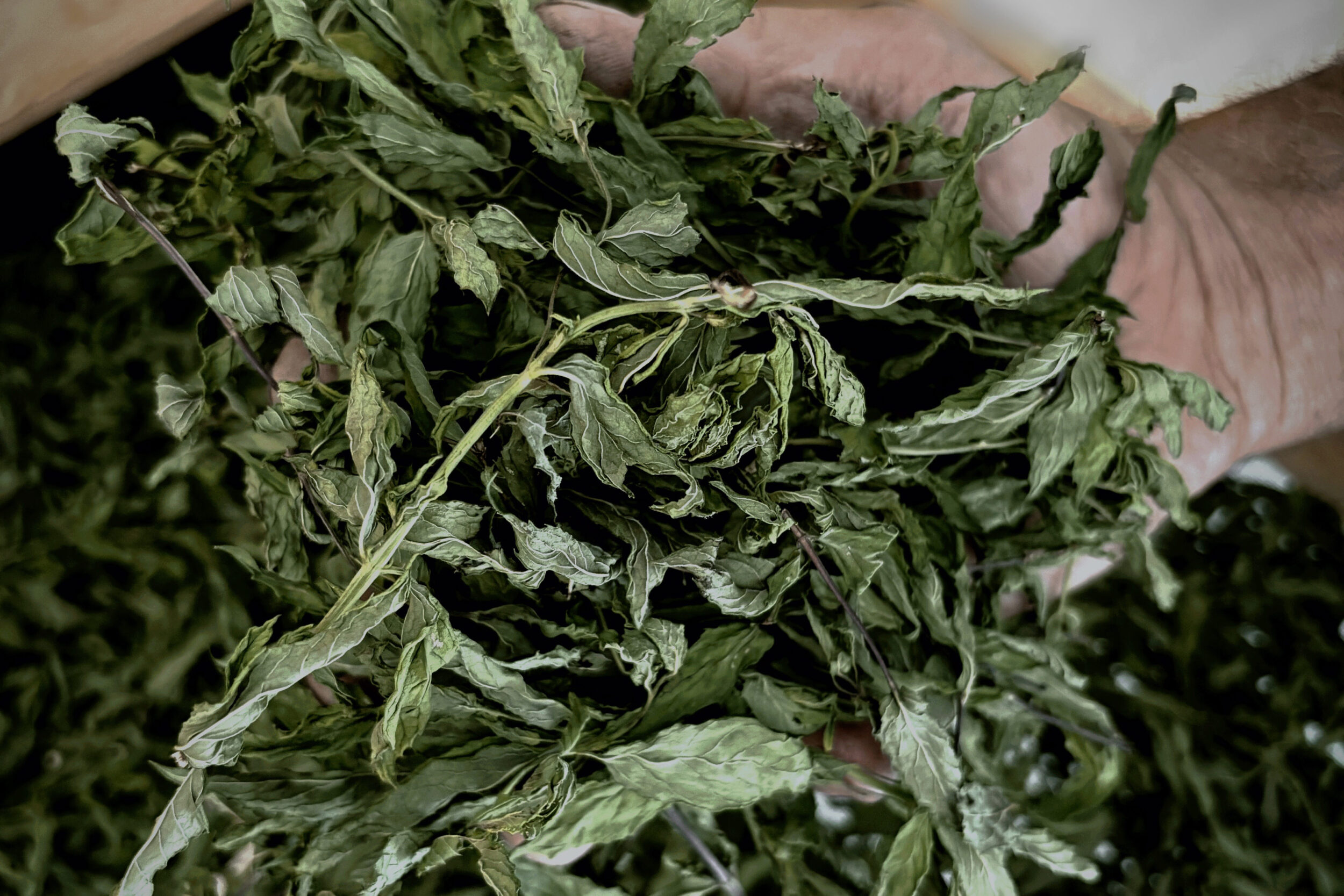
The road to Heinz leads deep into the Emmental, to about 900 meters above sea level. A remote farm, not easy to find, even the navigation device eventually gives up. But anyone who makes the effort is rewarded: gentle hills, lush meadows, and a landscape that makes your pulse slow down. For decades, Heinz has been guided by a vision: to connect organic herbs, people, and nature, a vision that finds its way into every cup of Musa Calma tea.
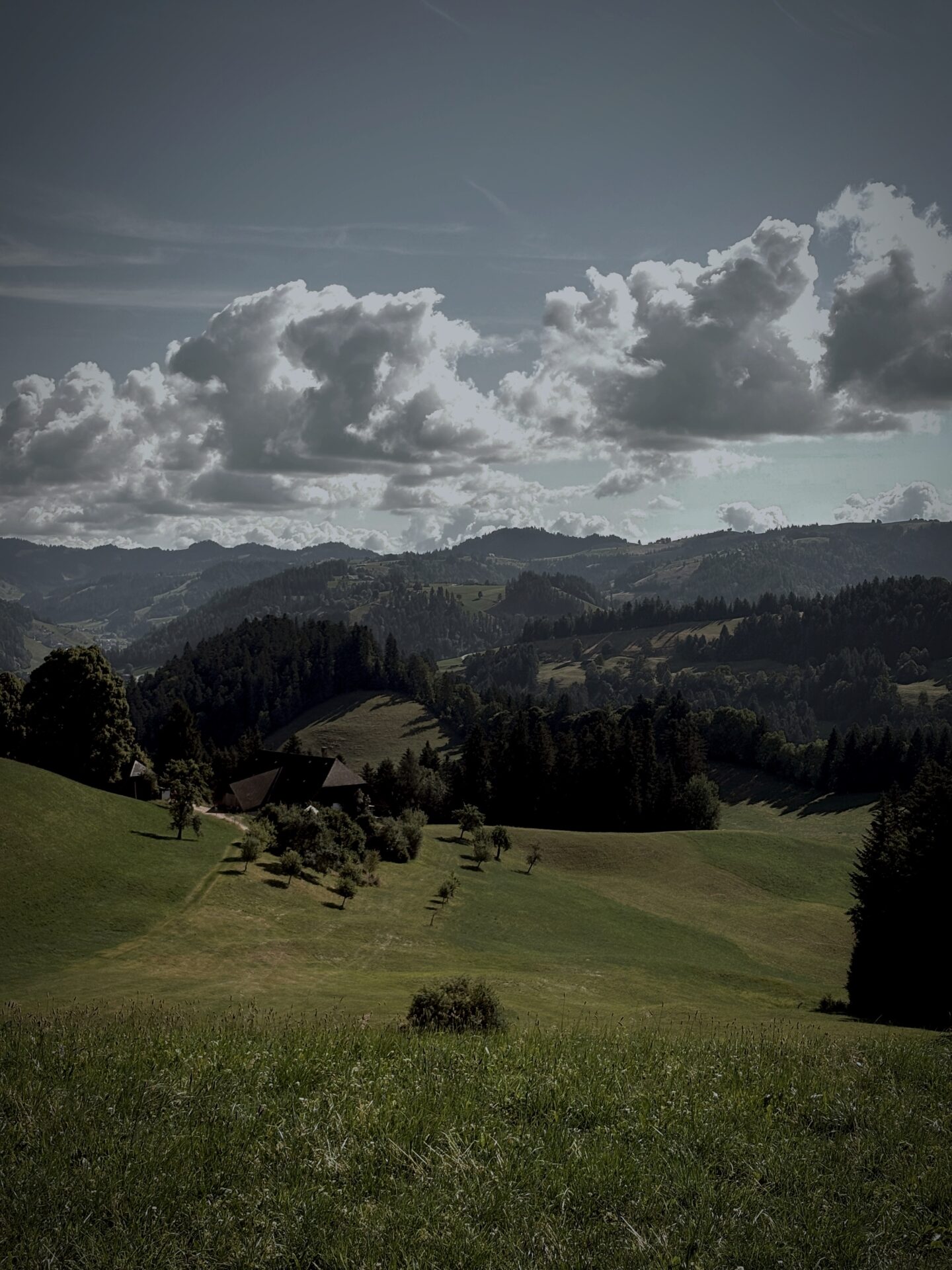
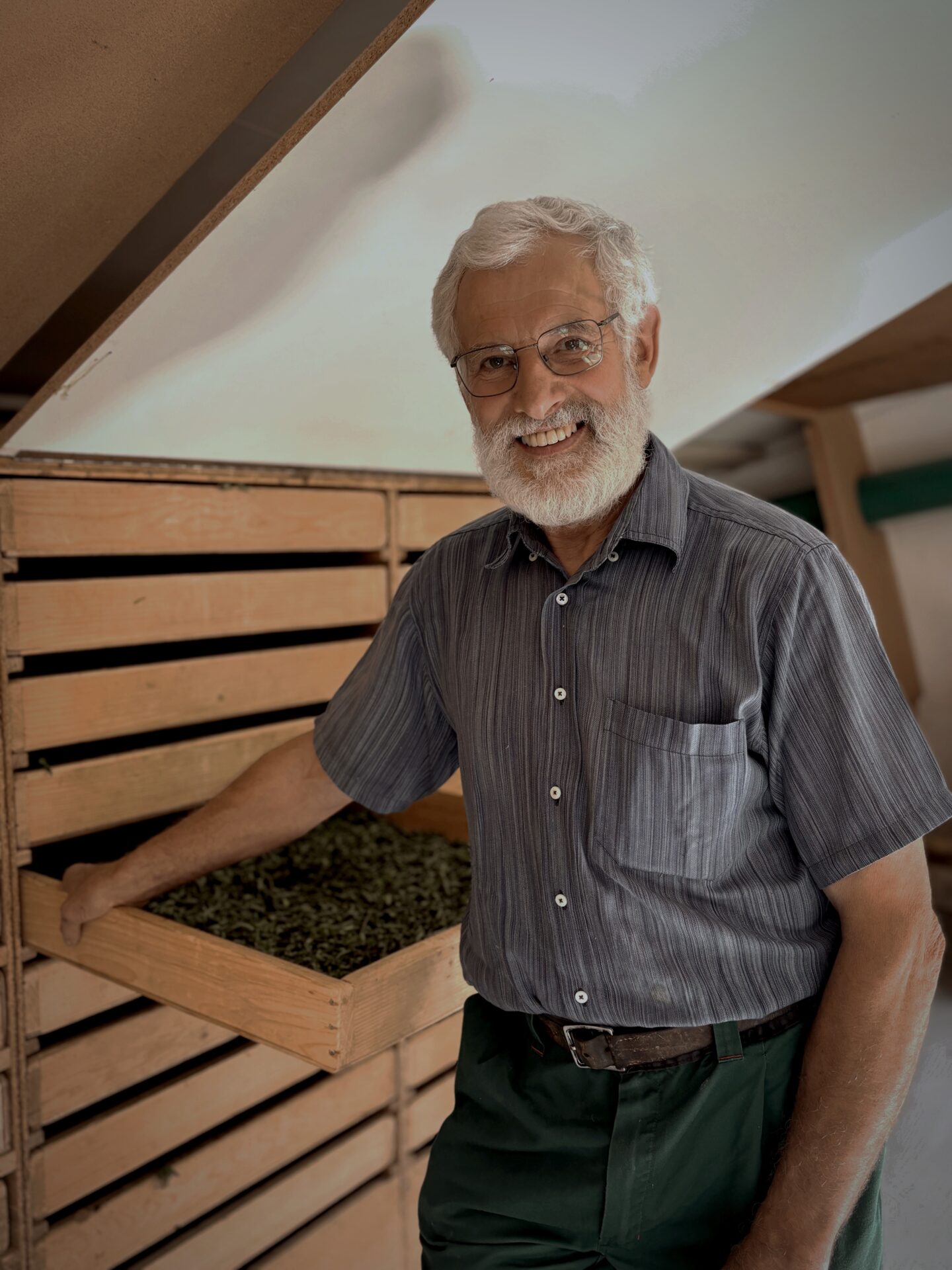
Heinz lives and works here with his family. He has been practicing organic farming since 1986, at a time when organic farming was still unheard of in the Emmental region. As one of the founding members, he helped bring the idea of organic herb farming to local farmers. Pioneer Heinz and his wife thus sparked exciting and heated discussions about organic farming in the agricultural sector. Even as a young boy, Heinz had a vivid dream: to become a farmer. He started out with cows, vegetables, and his first herbs on seven hectares of land. Today, that has grown to 25 hectares, with around 40 acres of herb fields.
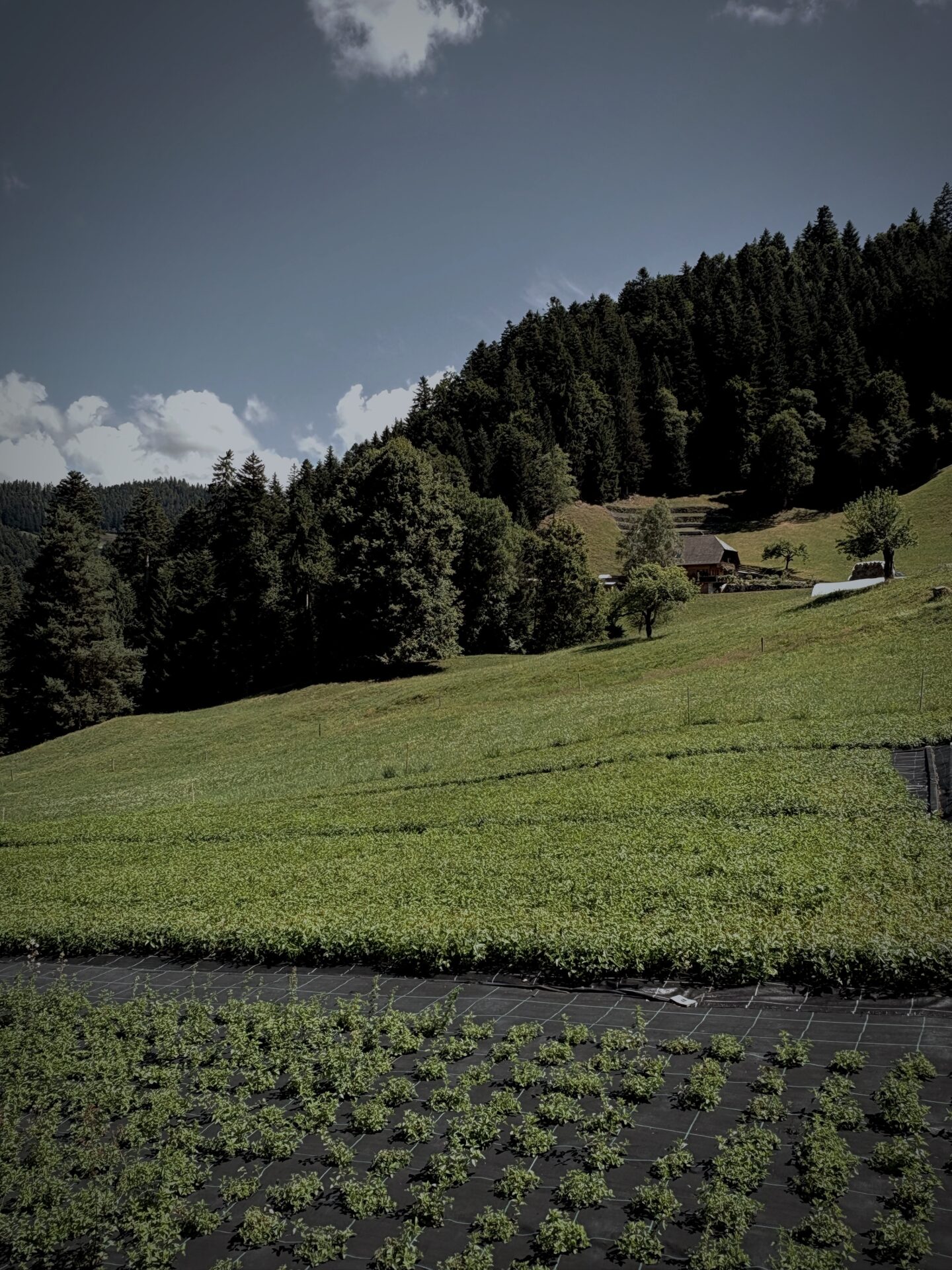
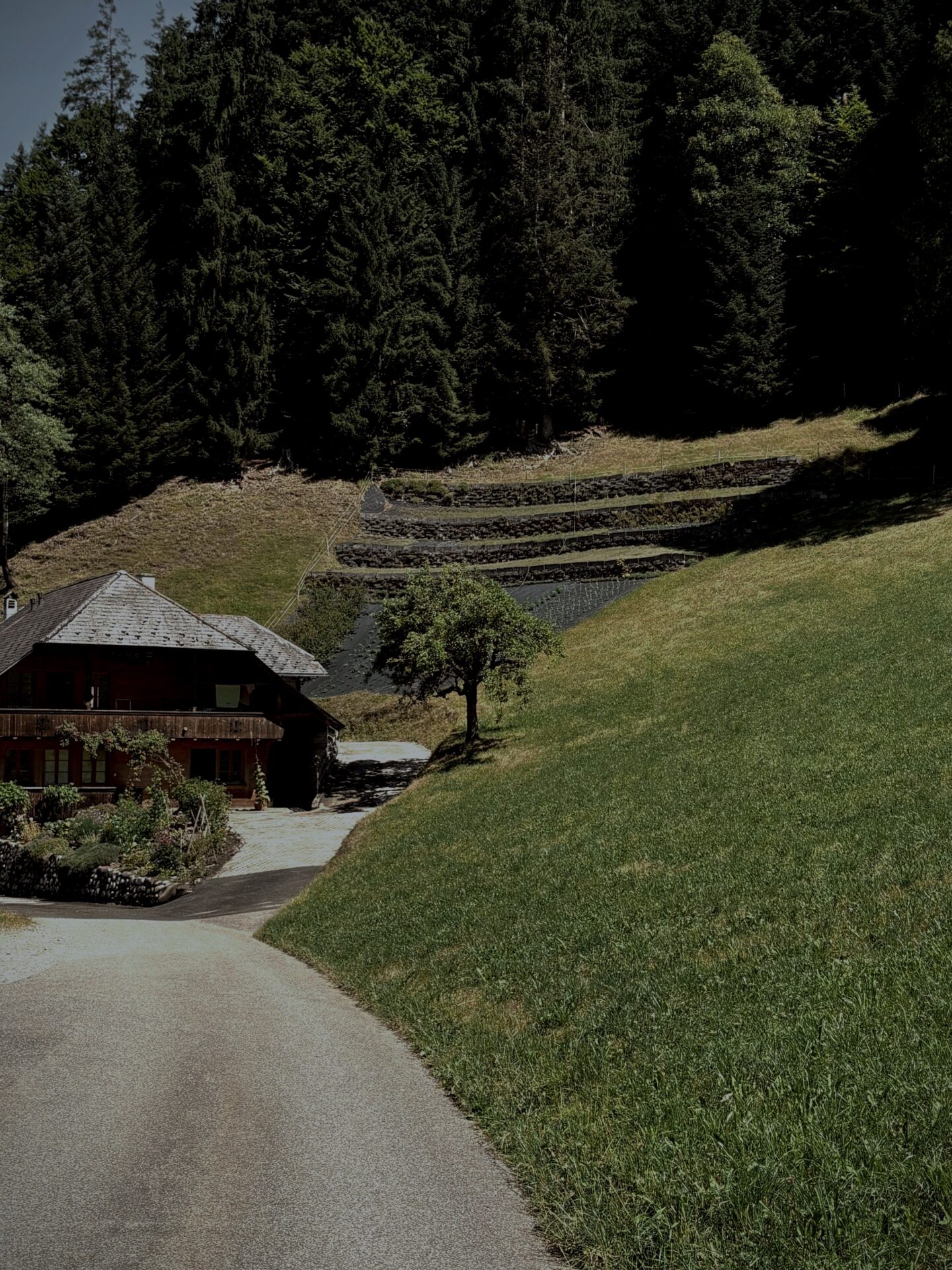
Up to 40 different herbs grow here: verbena, marigold, oregano, basil, parsley, Greek mountain tea, fennel, Moroccan mint, lemon balm, peppermint, rosemary, thyme, and lavender, just to name a few. Some plants need warmth and protection. In spring, there are foil tunnels where they can thrive until the frosty nights are over. Others brave the wind and rain in the open field. Ribbon nets protect young herbs from dirt during rain while keeping the soil moist. But organic farming also means: accepting that not everything runs perfectly. Pests are part of it. While conventional farmers resort to chemicals, Heinz relies on his conviction in natural cycles. No pesticides instead observation, patience, and trust that plants will develop their own strength.
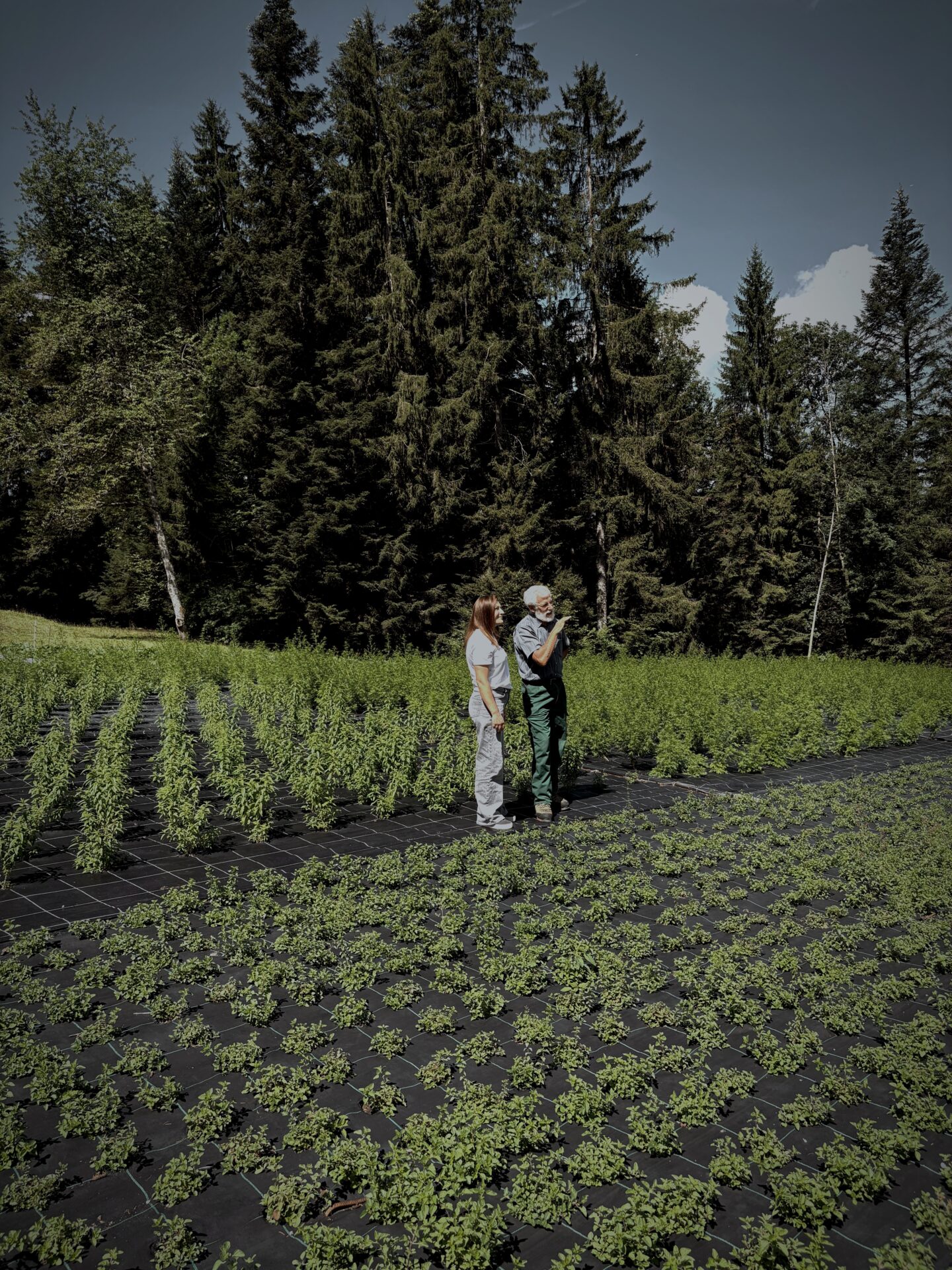
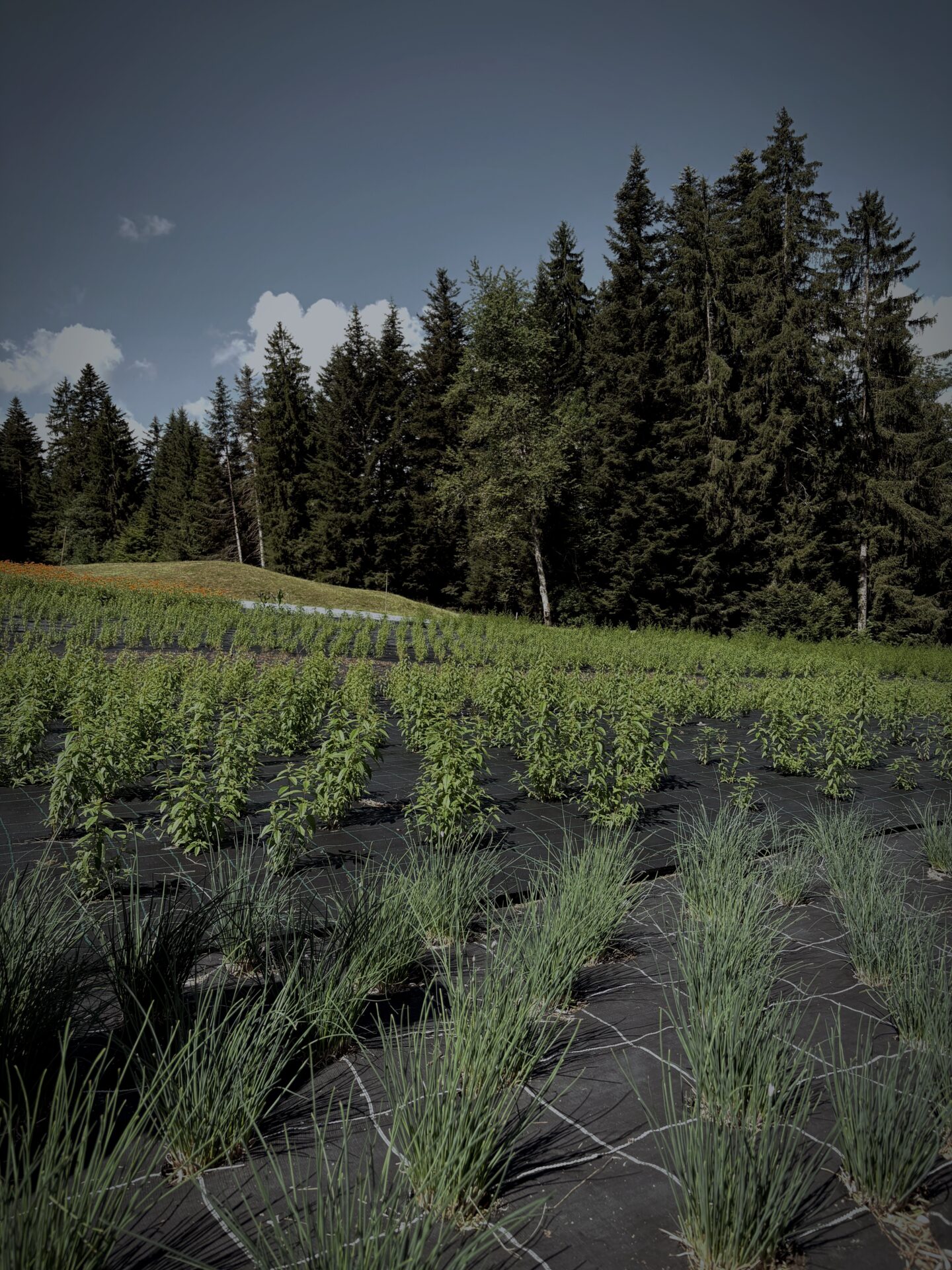
Harvest begins at the end of May and continues until October. Herbs are cut by hand or, where possible, with a cutting machine. The first cut, known as the “top cut,” is especially valuable: Leaves and blossoms are preserved whole, as this is where the essential oils are most concentrated. These top cuts are particularly appreciated for Musa Calma teas, they give the blends their intensity and full aroma. Afterwards comes re-cutting and fine cutting, which are mostly used for tea bags. Everything is carefully separated: leaves, blossoms, and stems, to ensure the highest quality in the end.
To keep the herbs’ quality, gentle processing is needed. For over 35 years, Heinz has used his own drying facility, powered by solar collectors and wood waste heat. The temperature stays constant at 35°C, low enough to preserve vibrant colors, valuable ingredients, and essential oils, the very essence that turns our tea into an experience.
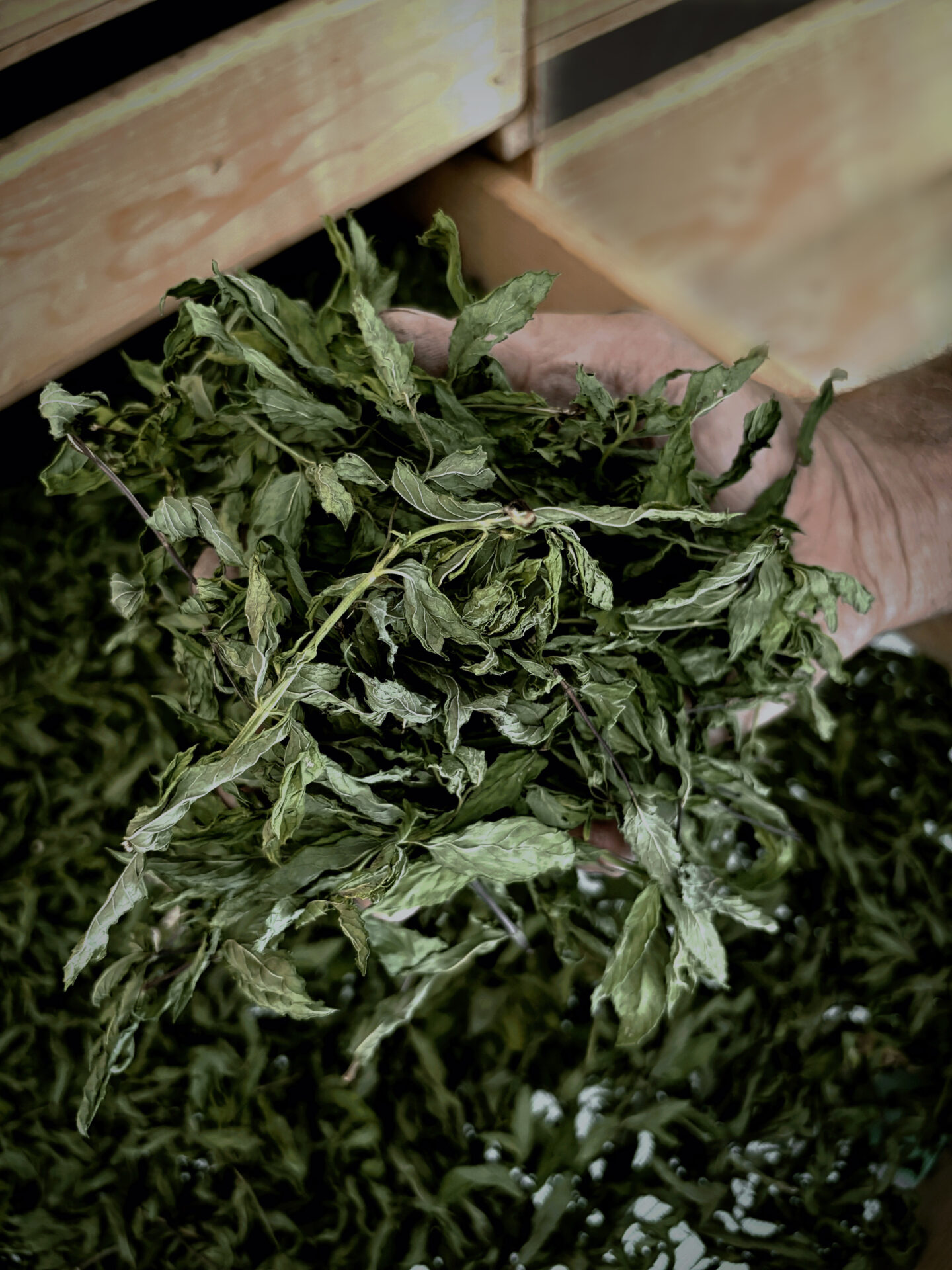
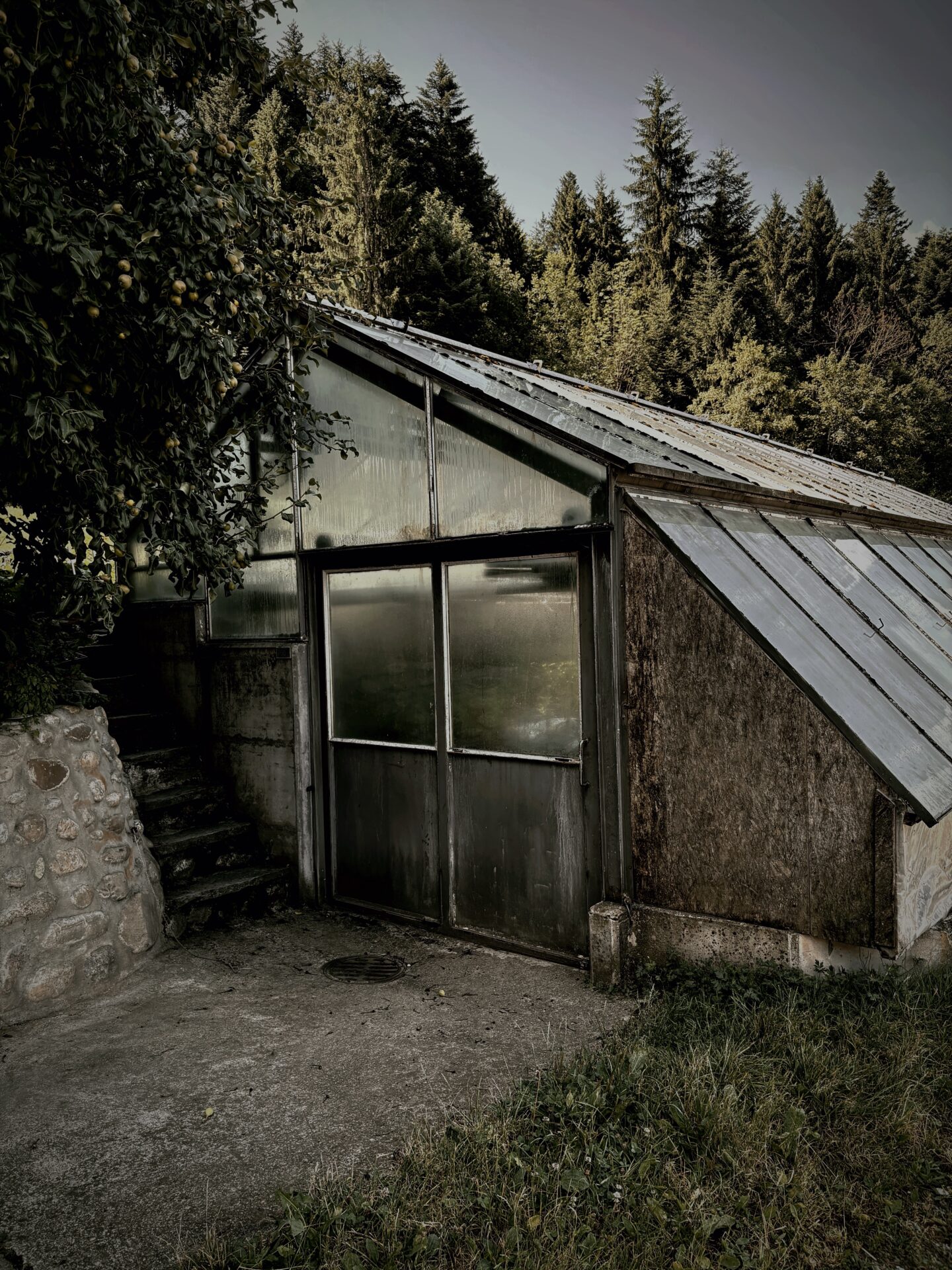
After about four days, the herbs are dry and full of vitality. Another step ensures purity: in a cold chamber, the herbs are stored at –30°C for three days to safely eliminate any insects, larvae, or eggs, before being transferred to storage. There they remain in a climate of 42% humidity and 12–14°C room temperature. Perfect conditions to keep the harvest fresh until further processing.
Heinz processes not only his own harvest but also that of neighboring farms. Around 20 other organic farmers in the region deliver their blossoms and herbs here. In some years, up to 15 tons of dried herbs went through his processing machines. An impressive testimony to the trust Heinz enjoys as a pioneer.
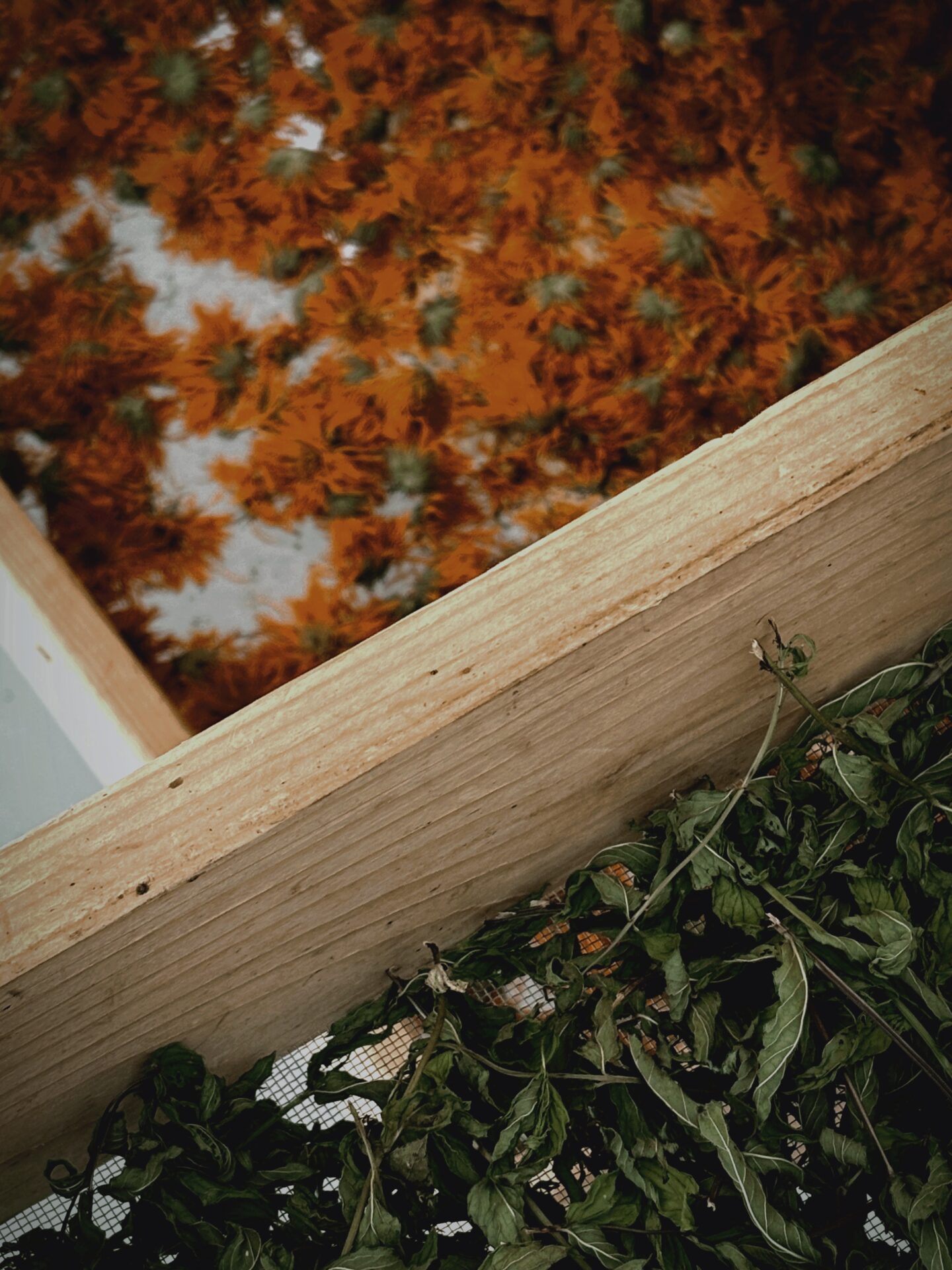
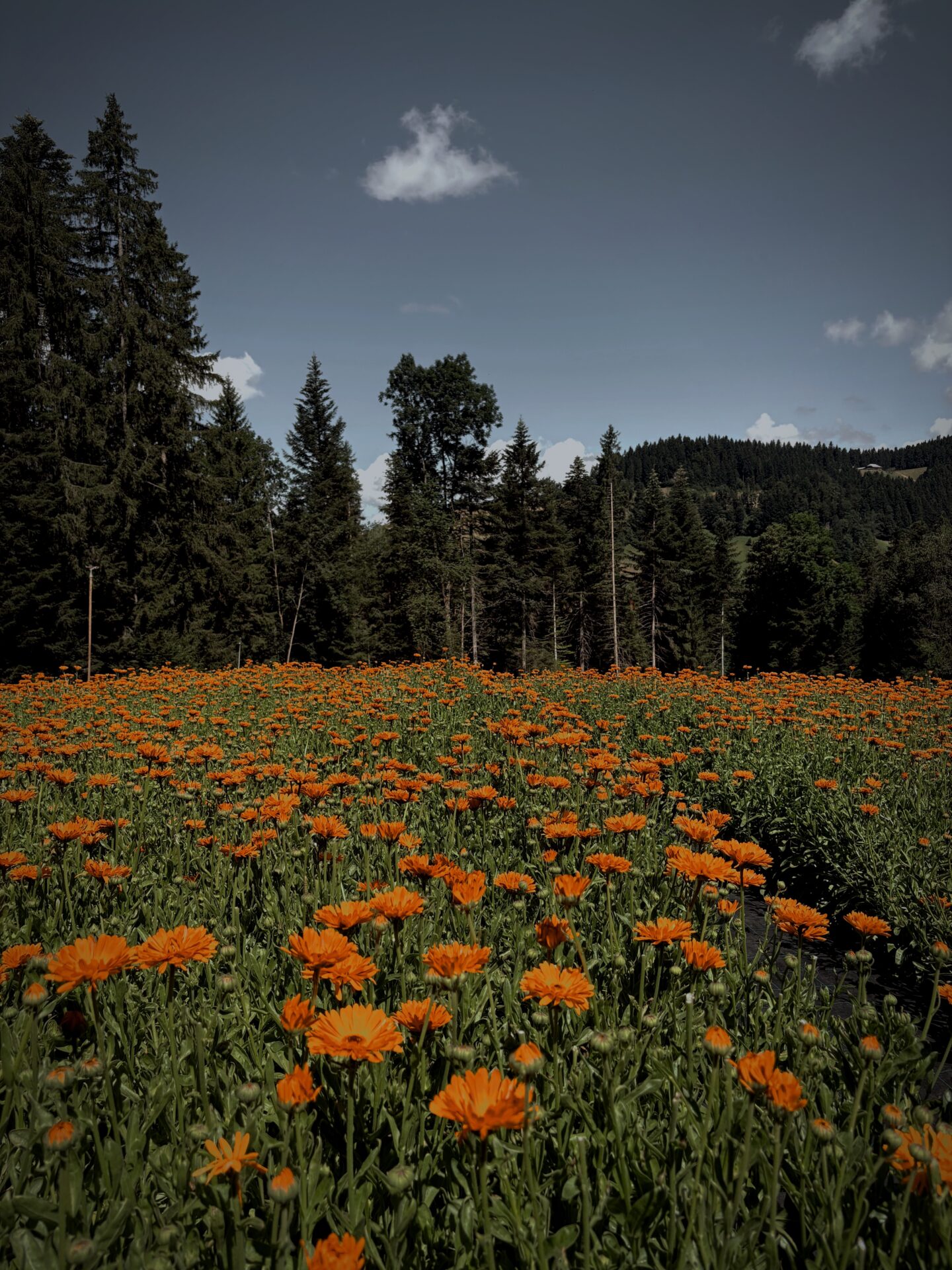
Once the dried herbs arrive at the Musa Calma manufactory, our part of the journey begins: we mix, fill, package, and prepare them by hand for our customers. Each cup of tea carries a piece of Emmental with it its landscape, its history, and the care of a man who has never stopped believing in the power of plants.
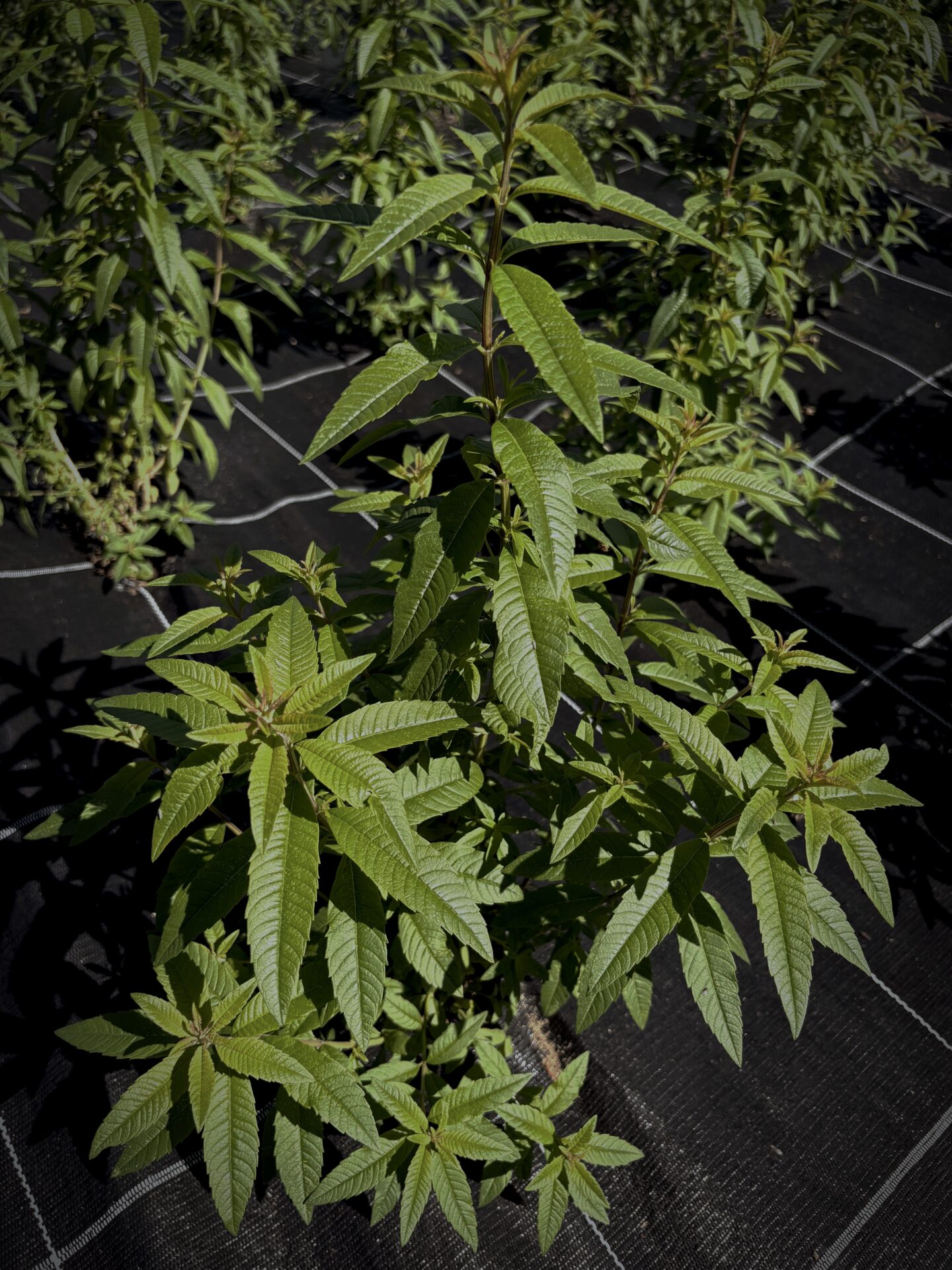
The connection goes beyond tea. With Heinz, we share a passion: love for wild herbs, their stories, and their precious power. We talk about alpine herbs but also about plants from other parts of the world, like Artemisia annua or Jiaogulan. Heinz’s curiosity doesn’t stop at national borders.
His farm is more than just a place of agriculture. It is a living example of how vision, patience, and trust can pave the way for a future in which people and nature are in harmony — and how, out of this attitude, a tea emerges that you don’t just drink, but experience.
